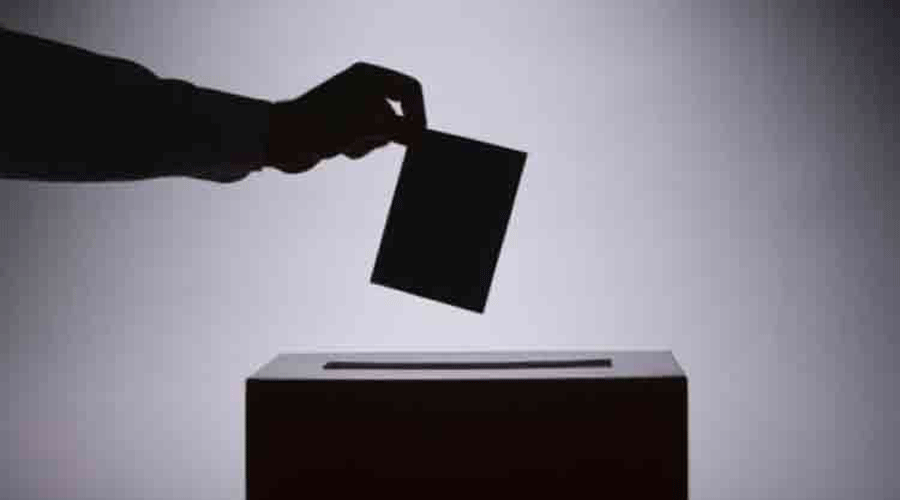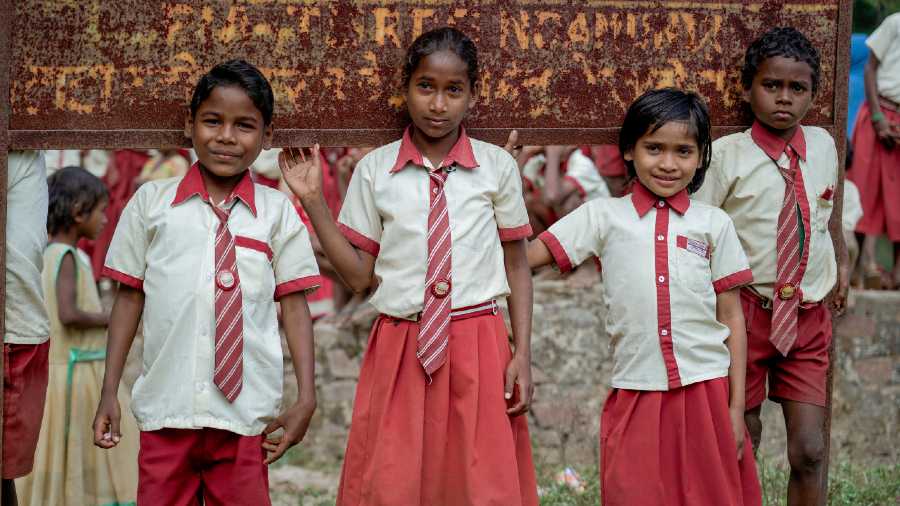Most student unions in India have been unable to hold elections since the pandemic began last year, which has dried up the talent pool of activists among students, many of whom graduate to electoral politics.
While Covid has also restricted traditional union activities like agitations and cultural events, the students have found new ways of raising their concerns, mainly online. However, their effectiveness as a pressure group has waned.
For many student groups such as the Congress’s National Students Union of India (NSUI) and the CPM-backed SFI, the immediate priority is to have all the students vaccinated and the campuses reopened so that normal student activity can resume.
The NSUI swept the campus polls at the Sampurnanand Sanskrit Vishwavidyalaya in Varanasi, one of the few institutions to witness student elections this year.
NSUI national president Neeraj Kundan has, however, had an uphill task mobilising students for agitations against unpaid scholarships, stalled public recruitment, the holding of exams despite the pandemic, and the authorities’ failure to offer fee waivers.
“Third-year students, who would recruit freshers, now don’t know who the freshers are…. The government misused this period to bring in the New Education Policy (NEP) at a time when we were struggling to find medical oxygen and hospital beds,” Kundan said.
The NEP makes no mention of socialism or secularism, upholds the Bhagavad Gita as its ideal, stresses fundamental duties without mentioning rights, and adds to the states’ fiscal burden. Critics say it will make education more expensive, promote online learning which will further exclude the poor, and dilute student representation.
“We have an ongoing campaign to vaccinate students first so that the campuses can reopen,” Kundan said.
“The NEP and the movement against privatisation — which effectively reduces jobs for the backward classes — are also issues on which we will seek to mobilise students this year,” he added.
“Despite the restrictions of the lockdown (which shut campuses and banned gatherings), we managed to organise several street protests on these issues — even outside Parliament and the education ministry.”
SFI general secretary Mayukh Biswas echoed Kundan and termed the pandemic a “golden opportunity for the Right-wing government to implement its policies”.
“The SFI had won elections in major central universities such as Jawaharhal Nehru University, the University of Hyderabad and Pondicherry University. Before the pandemic, even apolitical campuses (like the Film and Television Institute of India and Jamia Millia Islamia) had raised their voice against this government,” he said.
“This generation is the biggest threat for this regime and that’s why the shutdown of campuses and silencing of dissent.”
The SFI had approached the Supreme Court in May to ensure vaccines for all. The union it leads at JNU is on strike outside an administrative office to demand that the campus be reopened.
“The real problem is in the rural colleges, where the students are dropping out as they are unable to cope with online education. Child marriages are on the rise too. After the festive season, we will launch street protests for the reopening of campuses,” Biswas said.
Crime records show a 50 per cent increase in child marriages last year.
The Delhi University Students’ Union (DUSU), India’s largest elected students’ union, has tried a three-pronged strategy to keep itself relevant during the pandemic, its president, Akshit Dahiya of the RSS-backed ABVP, said.
“The DUSU has held leadership summits with Union ministers and luminaries from different fields. It has also led protests against exams, and organised volunteers for lockdown relief,” Dahiya said.
“Student activism and leadership has been affected because of the pandemic. DU students from all over India used to interact with each other and learn each other’s cultures and languages. From the elections, fresh leaders emerged.... Some 2,500 to 3,000 students used to contest for posts in the DUSU and the college unions, and more than 2 lakh used to vote.”
Members of the CPIML Liberation’s All India Students’ Association were booked for violating the epidemic restrictions on gatherings when they recently held a demonstration demanding the reopening of colleges in Delhi.
Last year, several JNU and Jamia students were arrested for protesting against the new citizenship regime.
The crackdown has led to new modes of protest.
Delhi University postponed its exams in May after an online campaign by Arya Ray, a theatre personality and BA English student at the Sri Venkateswara College.
“Students and their families were suffering from Covid. Let alone the mental trauma, it was physically impossible for many to write their exams. As it is, online learning has excluded many who do not have the required facilities. DU was not going to budge, so some of our teachers told us to do all we can,” Ray, who does not belong to any political student group, said.
“There is only so much that online protests can achieve without activity on the ground…. There is comparatively more freedom of expression online right now. As this exclusionary process of online learning continues, there are more reasons for outrage.”


